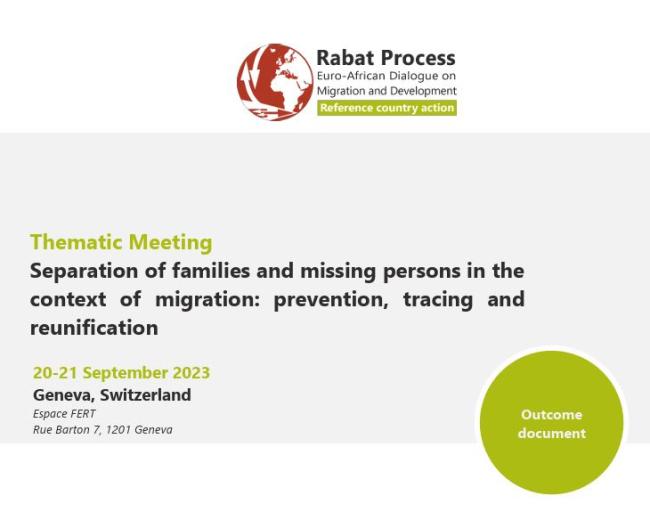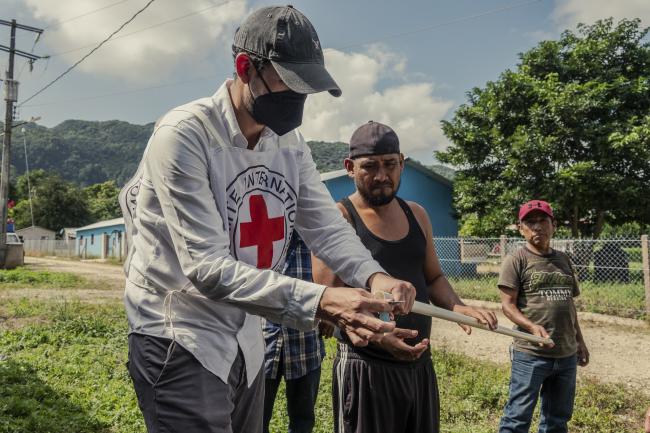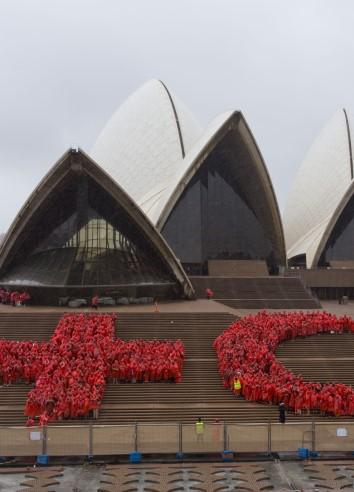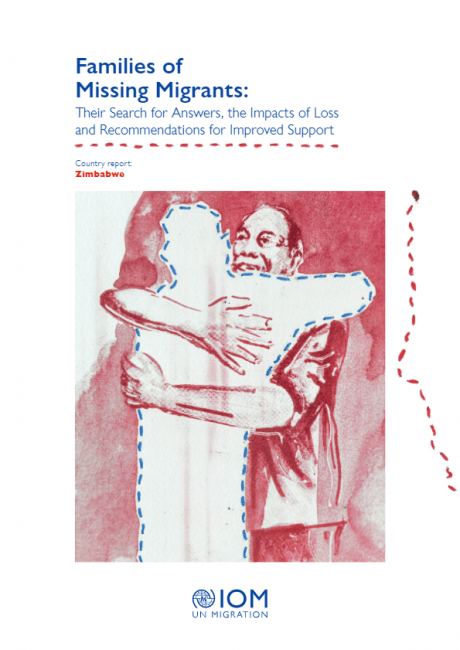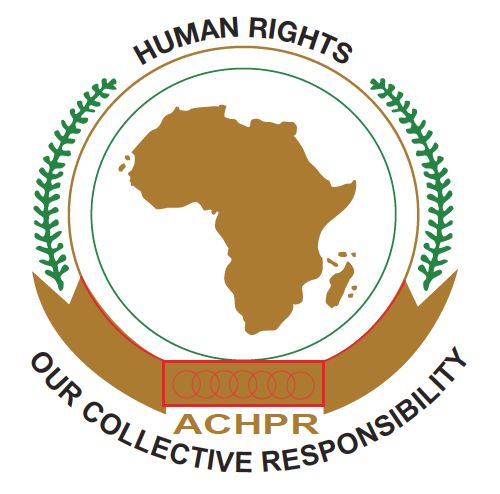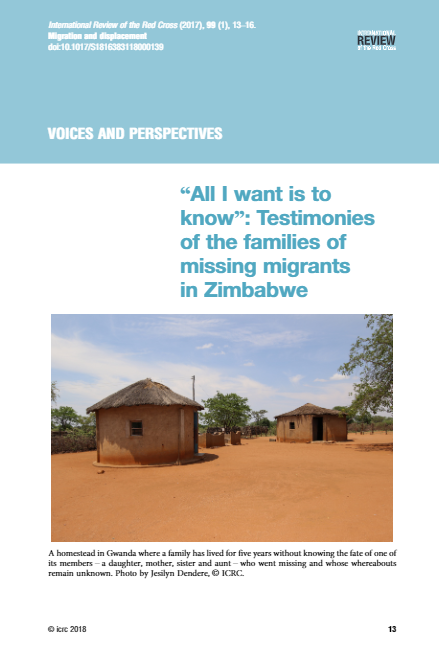
All I want is to know : testimonies of the families of missing migrants in Zimbabwe
Every day, people all over the world leave their homes in search of a better life. On the road, many go missing. The mandate of the International Committee of the Red Cross (ICRC) to protect the lives and dignity of victims of armed conflict and other situations of violence includes, in certain contexts, protection of vulnerable migrants. The ICRC missing migrants pilot project aims to locate or clarify the fate of Zimbabwean migrants who went missing in South Africa, on behalf of their families. The ICRC aims to work with South African and Zimbabwean authorities to support and enhance existing systems, tools and resources used for locating missing relatives, living or dead. Additionally, the ICRC carries out and supports the activities of National Red Cross and Red Crescent Societies in the region to restore contact between and where possible reunify family members, in particular children, who have been separated by conflict, migration, displacement or natural or man-made disasters. The Review has chosen to open this issue with the stories of family members of missing migrants in Zimbabwe. The section aims to show the everyday struggle, sometimes lasting for many years, of those that live with continuous uncertainty regarding the fate and whereabouts of their loved ones. As a result of the disappearances associated with migration, families searching for missing relatives often face a range of needs and challenges. These persons chose to share their life stories with the Review, allowing our readers to understand the intricate balance of uncertainty, hope and the "need to know" that family members of missing migrants live with every day. The testimonies were given to the ICRC in Zimbabwe in November 2017. In order to protect the families, their names have been omitted.


